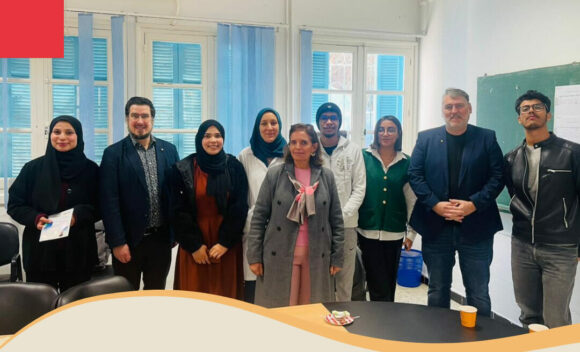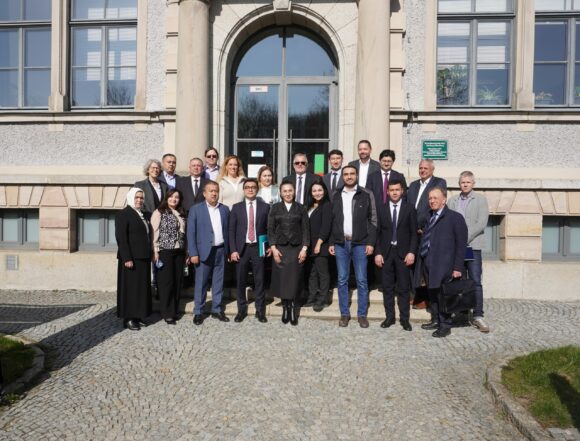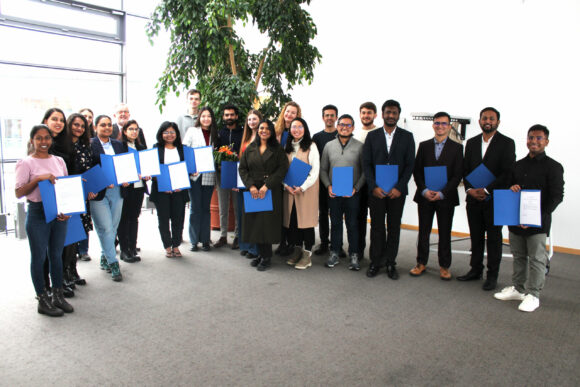Despite many discussions about rising gas and petrol prices in this country: The economic consequences of the conflict between Russia and Ukraine particularly affect Russia’s neighboring countries in Central Asia. This was made clear in a remarkable lecture by Saule Kemelbayeva, economist at the International School of Economics of the M. Narikbayev KAZGUU University in Nur-Sultan, Kazakhstan. A representative of the Kazakh Embassy also attended.
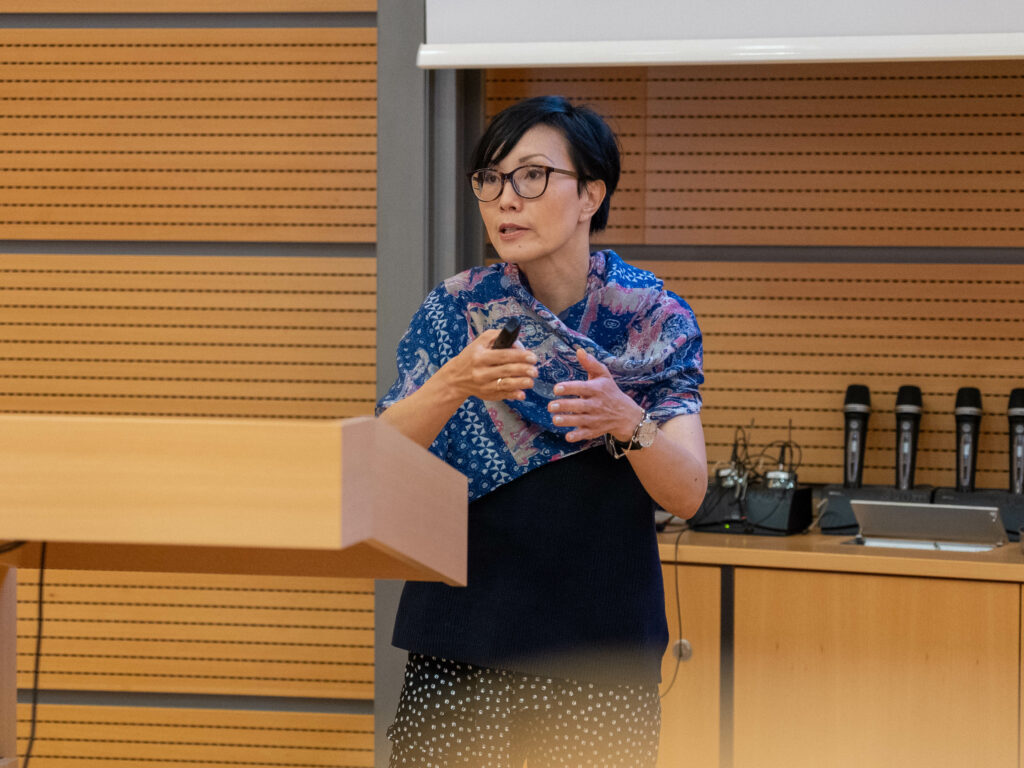
Hof University of Applied Sciences has a partnership agreement with the private KAZGUU University in the north of the country and also offers its students two double degree programs in economics and business informatics. Saule Kemelbayeva used the existing partnership relations as well as funding within the framework of the Erasmus program to report on the developments in Central Asia since the beginning of the Ukraine conflict.
Central Asia little in the European field of vision
Due to the strategic and geopolitical situation of the region and the increasingly important energy and security issues, the five countries of Central Asia – Kazakhstan, Kyrgyzstan, Tajikistan, Turkmenistan and Uzbekistan – were increasingly in the focus of Europe before the outbreak of the Russian-Ukrainian war. In the meantime, however, Europe and Germany have largely lost sight of the upheavals that are occurring in the immediate vicinity of the conflict countries – although these could well have medium- and long-term consequences for the Western world.
Russia’s economy collapsed
In her fact-filled lecture, the scientist first made it clear that it is Russia itself, however, that is currently having to cope with the hardest economic slumps
The war itself, but also the sanctions imposed by the West, are leading to what is now a dramatic collapse in Russian economic data in the areas of industrial production and gross domestic product (GDP) – foreseeable losses in prosperity and jobs will be the logical consequence here.”
Saule Kemelbayeva
Even various safeguard measures taken by the Russian state could not prevent this. Russia is already forced to turn economically away from the West and towards Asia. However, this is by no means as easy as Russia would like to make it look at the moment: “In order to concentrate economic activities on Asia, enormous investments in infrastructure and logistics are necessary. This costs not only a lot of money, but also time.” The danger of further nationalization and monopolization of the economy within Russia is increasing, the standard of living is falling and the exodus of qualified workers is increasing significantly, he added
Focus on energy and food crisis
In terms of the world economy, the current discussion would focus on the looming food crisis in addition to the energy crisis. No wonder: Russia and Ukraine alone produced over 25% of the world’s supply of wheat before their war. But the price of wheat has already risen 53% since the war began and is at its highest level since 2011, the Kazakh academic said. As is well known, a further loss of supply is likely to have unforeseeable consequences for the African continent in particular. But the developing countries of Central Asia – after all, together larger than the Indian subcontinent – are also increasingly affected by the ongoing conflict, she said.
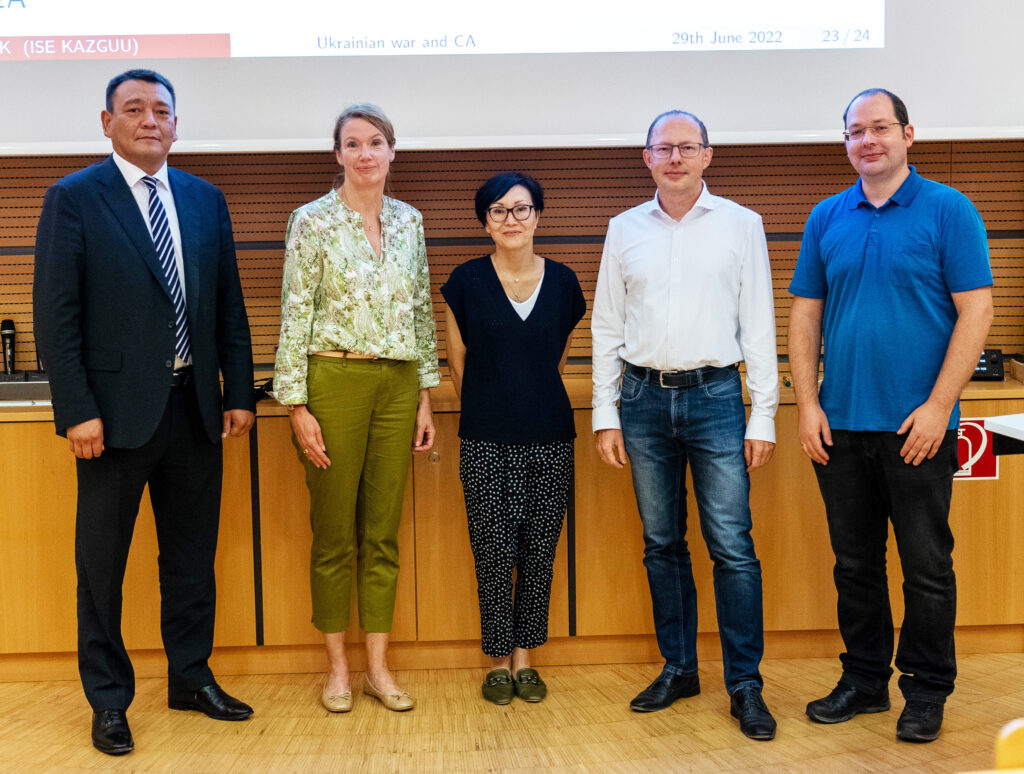
Central Asia suffers from export dependency
According to the report, Central Asia is currently experiencing a period of economic weakness, which is exacerbated by authoritarian systems, imperfect legal institutions and geopolitical risks. Growth driven by the commodity boom until 2014 has long since ended. Declining quality of life, inequality and corruption weigh heavily on the people. In Kazakhstan, there were large-scale mass protests and unrest in January 2022 triggered by a sharp rise in gas prices. Economic growth in the Caucasus and Central Asia is expected to slow from 5.6% in 2021 to 2.6% in the current year due to close trade and financial ties with Russia, reliance on remittances and tourism, and exchange rate effects(IMF forecast).
“In particular, average income is falling – most sharply in Armenia and Georgia, but also in Kyrgyzstan, Kazakhstan and Tajikistan, where there is up to 5% less money available,” Saule Kemenbayeva said. A particular problem is that none of the countries has its own seaport. Oil in particular is exported almost exclusively via Russia, which is currently becoming increasingly difficult. The transport of oil, which depends on its Russian neighbor, is increasingly disrupted or impossible. In addition, Russia is still traditionally the main buyer of many other locally produced goods, which also leads to losses and job losses in the current situation
Central Asia is highly dependent on exports. When this is disrupted, local prosperity, jobs and, as a consequence, possibly social peace are at stake.”
Saule Kemelbayeva
The visit was organized by Prof. Dr. Sebastian Leuoth and Prof. Dr. Andrej Bachmann from the Faculty of Computer Science at Hof University of Applied Sciences.




